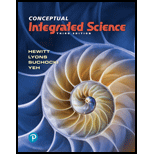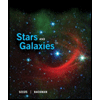
Pearson eText Conceptual Integrated Science -- Instant Access (Pearson+)
3rd Edition
ISBN: 9780135626573
Author: Paul Hewitt, Suzanne Lyons
Publisher: PEARSON+
expand_more
expand_more
format_list_bulleted
Concept explainers
Textbook Question
Chapter 20, Problem 67TE
What role do the rib muscles and rib cage play in inhaling and exhaling?
Expert Solution & Answer
Want to see the full answer?
Check out a sample textbook solution
Students have asked these similar questions
Can someone help
Can someone help me
A particle in a box between x=0 and x=6 has the wavefunction Psi(x)=A sin(2πx). How muchenergy is required for the electron to make a transition to Psi(x)= A’ sin(7π x/3). Draw anapproximate graph for the wavefunction. Find A and A'
Chapter 20 Solutions
Pearson eText Conceptual Integrated Science -- Instant Access (Pearson+)
Ch. 20 - Prob. 1RCCCh. 20 - How does getting rid of cellular wastes require...Ch. 20 - What stimulates the heart to beat?Ch. 20 - What makes the lub-dubb sound of the heartbeat?Ch. 20 - Prob. 5RCCCh. 20 - Trace the path of blood through the body,...Ch. 20 - What are the three types of blood cells, and what...Ch. 20 - Trace the path of air as it moves to the alveoli.Ch. 20 - What structures in the trachea help keep it open?Ch. 20 - Prob. 10RCC
Ch. 20 - What does digestion accomplish?Ch. 20 - What are the functions of saliva?Ch. 20 - What prevents food from going into the trachea...Ch. 20 - What happens to food while it is in the stomach?Ch. 20 - What structures increase the surface area...Ch. 20 - Prob. 16RCCCh. 20 - What are some of the important minerals you obtain...Ch. 20 - What is metabolic syndrome?Ch. 20 - What are some of the benefits of exercise?Ch. 20 - Prob. 20RCCCh. 20 - How does fluid move from the circulatory system...Ch. 20 - Prob. 22RCCCh. 20 - What is the function of the loop of henle?Ch. 20 - What are two functions of the lymphatic system?Ch. 20 - Prob. 25RCCCh. 20 - Prob. 26RCCCh. 20 - What is an antigen?.Ch. 20 - Prob. 28RCCCh. 20 - What is the function of a memory cell?Ch. 20 - What is the structure of hemoglobin? Which part of...Ch. 20 - How many oxygen molecules can one molecule of...Ch. 20 - Prob. 32TISCh. 20 - What is blood pressure?Ch. 20 - What is the difference between systolic blood...Ch. 20 - What health issues are associated with high blood...Ch. 20 - What is the diaphragm? What is its role in...Ch. 20 - What happens to the volume of the thoracic cavity...Ch. 20 - Prob. 38TISCh. 20 - Prob. 39TISCh. 20 - What happens to the filtrate in the second branch...Ch. 20 - Prob. 41TISCh. 20 - Prob. 45TCCh. 20 - Prob. 46TCCh. 20 - Prob. 47TSCh. 20 - A red blood cell has no nucleus and is therefore...Ch. 20 - A typical person has a heart rate of 70 beats per...Ch. 20 - Prob. 50TECh. 20 - How does playing tennis or jumping rope require...Ch. 20 - Prob. 52TECh. 20 - Why are the atria of the heart less muscular than...Ch. 20 - The pumping of the heart does most of the work...Ch. 20 - Where in the body blood is most oxygenated?Ch. 20 - Prob. 56TECh. 20 - Prob. 57TECh. 20 - Prob. 58TECh. 20 - Why is carbon monoxide toxic? What effect does it...Ch. 20 - Why does blood pressure decrease as blood flows...Ch. 20 - Prob. 61TECh. 20 - High blood pressure is usually treated with...Ch. 20 - Which functions, other than acquiring oxygen for...Ch. 20 - Prob. 64TECh. 20 - Prob. 65TECh. 20 - Prob. 66TECh. 20 - What role do the rib muscles and rib cage play in...Ch. 20 - What is the role of air pressure in inhaling and...Ch. 20 - Is breathing a voluntary or involuntary action?Ch. 20 - Prob. 70TECh. 20 - Prob. 71TECh. 20 - Prob. 72TECh. 20 - What happens to food in the small intestine?Ch. 20 - Prob. 74TECh. 20 - Prob. 75TECh. 20 - Prob. 76TECh. 20 - What factors make a person more likely to develop...Ch. 20 - Prob. 78TECh. 20 - Prob. 79TECh. 20 - What is the difference between elimination feces...Ch. 20 - Does concentrating urine require energy? If so,...Ch. 20 - Prob. 82TECh. 20 - Prob. 83TECh. 20 - Prob. 84TECh. 20 - Prob. 85TECh. 20 - Why is the innate immune system described as...Ch. 20 - Prob. 87TECh. 20 - Prob. 88TECh. 20 - Prob. 89TECh. 20 - How does a vaccine protect you from disease?Ch. 20 - Several of your senses provide examples of how...Ch. 20 - How do the arterioles react when you are running?...Ch. 20 - Prob. 93TDICh. 20 - Why shouldnt you talk with your mouth full not...Ch. 20 - If you hold a piece of cracker in your mouth...Ch. 20 - Prob. 96TDICh. 20 - Prob. 97TDICh. 20 - Prob. 98TDICh. 20 - What do you think explains the placebo effect?Ch. 20 - The leading causes of death in low-income...Ch. 20 - Prob. 1RATCh. 20 - Prob. 2RATCh. 20 - Blood pressure is highest in the a arterioles. b...Ch. 20 - Oxygen moves from the alveoli in the lungs into...Ch. 20 - When do muscles in the diaphragm and rib cage...Ch. 20 - Prob. 6RATCh. 20 - Prob. 7RATCh. 20 - The stretchy sac where urine is temporarily stored...Ch. 20 - Prob. 9RATCh. 20 - Which of the following is associated with the...
Additional Science Textbook Solutions
Find more solutions based on key concepts
71. Name each molecular compound.
a.
b.
c. NO
d.
Introductory Chemistry (6th Edition)
10. For the graph in Figure Q14.10 , determine the frequency f and the oscillation amplitude A.
Figure Q14.10
College Physics: A Strategic Approach (3rd Edition)
Fibrous connective tissue consists of ground substance and fibers that provide strength, support, and flexibili...
Human Biology: Concepts and Current Issues (8th Edition)
How do you think a cell performing cellular respiration rids itself of the resulting CO2?
Campbell Biology (11th Edition)
Which coastal area experiences the largest tidal range difference in height between the high tide and low tide?...
Applications and Investigations in Earth Science (9th Edition)
1.1 Write a one-sentence definition for each of the following:
a. chemistry
b. chemical
Chemistry: An Introduction to General, Organic, and Biological Chemistry (13th Edition)
Knowledge Booster
Learn more about
Need a deep-dive on the concept behind this application? Look no further. Learn more about this topic, physics and related others by exploring similar questions and additional content below.Similar questions
- A proton is moving with 10^8 m/s speed. Find the De Broglie wavelength associated with theproton and the frequency of that wave.arrow_forwardFind the wavelength of the photon if a (Li--) electron makes a transition from n=4 to n=3. Findthe Bohr radius for each state.arrow_forwardA photon with wavelength 3000 nm hits a stationary electron. After the collision electron isscattered to 60 degrees. Find the wavelength and frequency of the scattered photon.arrow_forward
- A metal has threshold frequency 10^15. Calculate the maximum kinetic energy of the ejectedelectron if a laser beam with wavelength 1.5 10^-7 m is projected on the metal.arrow_forwardDetermine the direction of the vector V, B, or ♬ that is missing from the pair of vectors shown in each scenario. Here, u is the velocity vector of a moving positive charge, B is a constant and uniform magnetic field, and F is the resulting force on the moving charge. 1. 2. 3. B OB F 4. ↑F F 5. 怔 ↑ ↑F Answer Bank 6. ↑ TE Farrow_forwardTwo point charges (+9.80 nC and -9.80 nC) are located 8.00 cm apart. Let U=0 when all of the charges are separated by infinite distances. What is the potential energy if a third point charge q=-4.20 nC is placed at point b? 8.00 cm 8.00 cm 4.00 +4.00 +4.00- cm cm cm HJarrow_forward
- ! Required information Two chloride ions and two sodium ions are in water, the "effective charge" on the chloride ions (CI¯) is −2.00 × 10-21 C and that of the sodium ions (Na+) is +2.00 x 10-21 C. (The effective charge is a way to account for the partial shielding due to nearby water molecules.) Assume that all four ions are coplanar. CT Na+ Na+ 30.0° 45.0% с сг L. where a = 0.300 nm, b = 0.710 nm, and c = 0.620 nm. What is the direction of electric force on the chloride ion in the lower right-hand corner in the diagram? Enter the angle in degrees where positive indicates above the negative x-axis and negative indicates below the positive x-axis.arrow_forwardA pendulum has a 0.4-m-long cord and is given a tangential velocity of 0.2 m/s toward the vertical from a position 0 = 0.3 rad. Part A Determine the equation which describes the angular motion. Express your answer in terms of the variable t. Express coefficients in radians to three significant figures. ΜΕ ΑΣΦ vec (t)=0.3 cos (4.95t) + 0.101 sin (4.95t) Submit Previous Answers Request Answer × Incorrect; Try Again; 6 attempts remainingarrow_forwardPart A ■Review The uniform 150-lb stone (rectangular block) is being turned over on its side by pulling the vertical cable slowly upward until the stone begins to tip. (Figure 1) If it then falls freely (T = 0) from an essentially balanced at-rest position, determine the speed at which the corner A strikes the pad at B. The stone does not slip at its corner C as it falls. Suppose that height of the stone is L = 1.2 ft. Express your answer to three significant figures and include the appropriate units. ? ft VA 10.76 S Submit Previous Answers Request Answer × Incorrect; Try Again; 6 attempts remainingarrow_forward
- Consider the circuit shown in the figure. The battery has emf ε = 69 volts and negligible internal resistance. The inductance is L = 0.4 H and the resistances are R 1 = 12 Ω and R 2 = 9.0 Ω. Initially the switch S is open and no currents flow. Then the switch is closed. After leaving the switch closed for a very long time, it is opened again. Just after it is opened, what is the current in R 1?arrow_forwardA capacitor with a capacitance of C = 5.95×10−5 F is charged by connecting it to a 12.5 −V battery. The capacitor is then disconnected from the battery and connected across an inductor with an inductance of L = 1.55 H . At the time 2.35×10−2 s after the connection to the inductor is made, what is the current in the inductor? At that time, how much electrical energy is stored in the inductor?arrow_forwardCan someone help me with this question. Thanks.arrow_forward
arrow_back_ios
SEE MORE QUESTIONS
arrow_forward_ios
Recommended textbooks for you
 An Introduction to Physical SciencePhysicsISBN:9781305079137Author:James Shipman, Jerry D. Wilson, Charles A. Higgins, Omar TorresPublisher:Cengage Learning
An Introduction to Physical SciencePhysicsISBN:9781305079137Author:James Shipman, Jerry D. Wilson, Charles A. Higgins, Omar TorresPublisher:Cengage Learning Foundations of Astronomy (MindTap Course List)PhysicsISBN:9781337399920Author:Michael A. Seeds, Dana BackmanPublisher:Cengage Learning
Foundations of Astronomy (MindTap Course List)PhysicsISBN:9781337399920Author:Michael A. Seeds, Dana BackmanPublisher:Cengage Learning Stars and Galaxies (MindTap Course List)PhysicsISBN:9781337399944Author:Michael A. SeedsPublisher:Cengage Learning
Stars and Galaxies (MindTap Course List)PhysicsISBN:9781337399944Author:Michael A. SeedsPublisher:Cengage Learning
 Stars and GalaxiesPhysicsISBN:9781305120785Author:Michael A. Seeds, Dana BackmanPublisher:Cengage Learning
Stars and GalaxiesPhysicsISBN:9781305120785Author:Michael A. Seeds, Dana BackmanPublisher:Cengage Learning Physics for Scientists and Engineers: Foundations...PhysicsISBN:9781133939146Author:Katz, Debora M.Publisher:Cengage Learning
Physics for Scientists and Engineers: Foundations...PhysicsISBN:9781133939146Author:Katz, Debora M.Publisher:Cengage Learning

An Introduction to Physical Science
Physics
ISBN:9781305079137
Author:James Shipman, Jerry D. Wilson, Charles A. Higgins, Omar Torres
Publisher:Cengage Learning

Foundations of Astronomy (MindTap Course List)
Physics
ISBN:9781337399920
Author:Michael A. Seeds, Dana Backman
Publisher:Cengage Learning

Stars and Galaxies (MindTap Course List)
Physics
ISBN:9781337399944
Author:Michael A. Seeds
Publisher:Cengage Learning


Stars and Galaxies
Physics
ISBN:9781305120785
Author:Michael A. Seeds, Dana Backman
Publisher:Cengage Learning

Physics for Scientists and Engineers: Foundations...
Physics
ISBN:9781133939146
Author:Katz, Debora M.
Publisher:Cengage Learning
Newton's First Law of Motion: Mass and Inertia; Author: Professor Dave explains;https://www.youtube.com/watch?v=1XSyyjcEHo0;License: Standard YouTube License, CC-BY